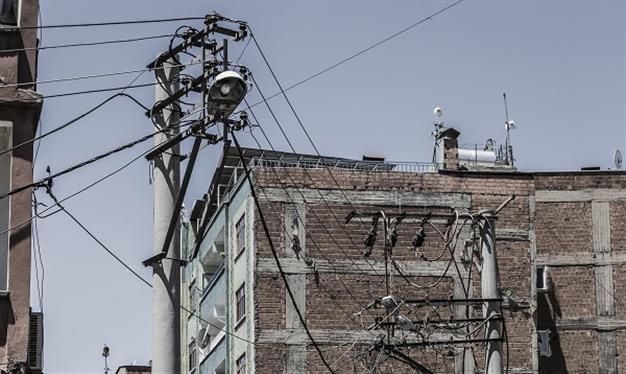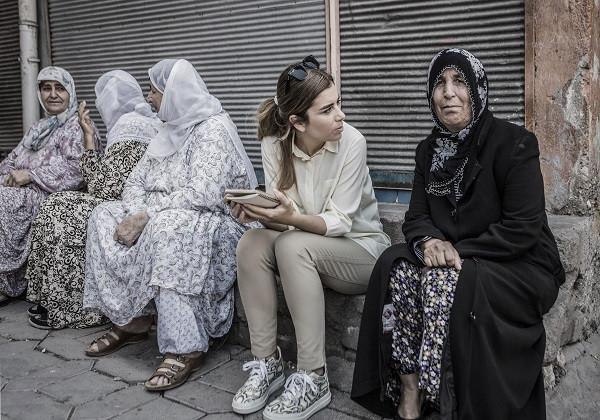Illegal electricity use lingers as a fraught issue in eastern Turkey
Merve Erdil – Diyarbakır

Uğur Yurdakul - Diyarbakır (Hürriyet photo)
The age-old problem of illegal electricity usage in eastern and southeastern Turkey, which has risen to the agenda once again with recent power outages, has deep and complex roots that cannot be explained solely by “poverty” or “political views.”
For the past few weeks, eastern Turkey has been gripped by more regular power cuts than usual, making the hot summer days even more difficult for locals. Illegal power usage is one of the major causes of the cuts, and there are several explanations for why locals are resorting to this illegal power.
The distributor company, the İşkaya-Doğu joint venture, which provides electricity for the southeastern cities of Diyarbakır, Şanlıurfa, Mardin, Batman, Siirt and Şırnak says there are two reasons for the outages: The Turkish Electricity Transmission Company’s (TEİAŞ) efforts to standardize power quality across the country, and the burden on infrastructure caused by the high level of leakage and losses.
Speaking to locals in Diyarbakır reveals that the main reason for illegal electricity usage is the financial constraints of the people, who complain of both a lack of job opportunities and sufficient government support.

Some citizens also express resentment over not getting a direct share from oil produced in the southeast.
As for the solutions, Zülfi Kurt, the head of one Diyarbakır neighborhood, suggests that İşkaya-Doğu should introduce a price ceiling in order to ease installment payments for citizens.
“Of course, people will pay this. There could be an upper limit, for example 100 Turkish Liras, and all those who spend over this limit can pay [the missing difference],” he said.
A representative from İşkaya-Doğu said the firm was obliged to enforce periodic power outages in order to earn profits, as the rate of illegal electricity usage rises up to 90 percent in some areas.
However, he added that the government could start a study to impose a social tariff and to relieve some of the burden from citizens.
“There is a global index: If a person’s energy bill exceeds 10 percent of their income, it is perceived as a red alarm. The Development Ministry could make a study and implement a social tariff. The state’s power is enough to do this. Not only for the southeast, there could be a social tariff for all regions,” he said.

